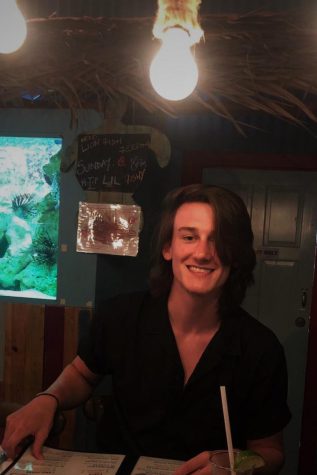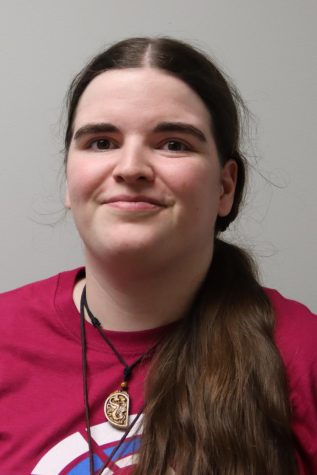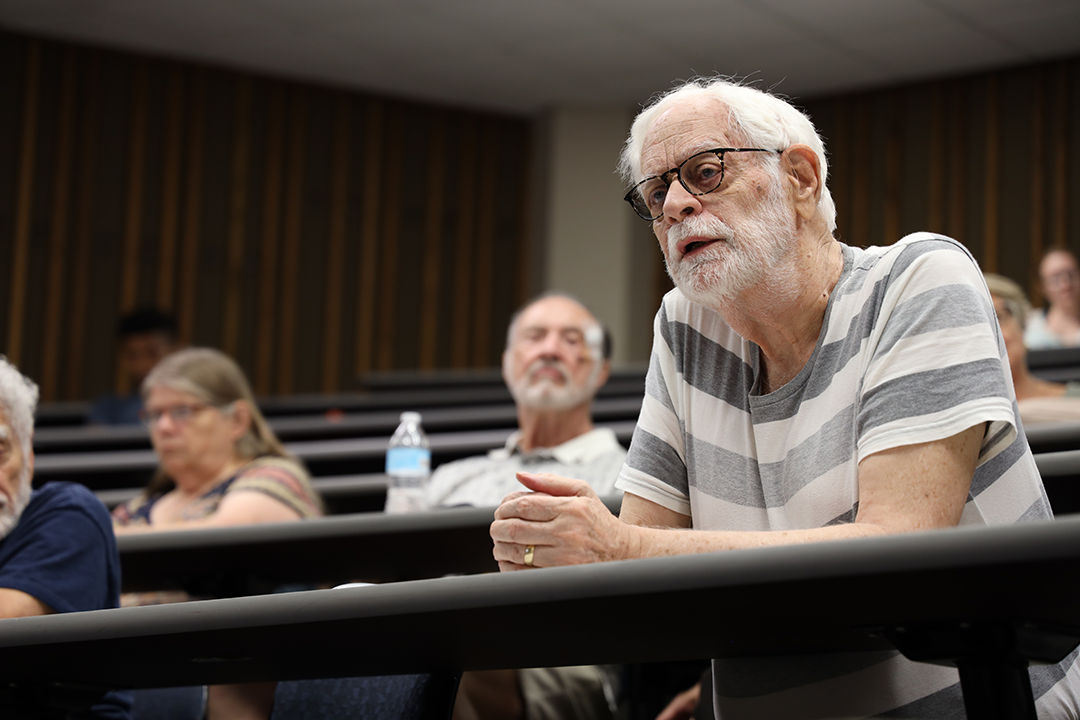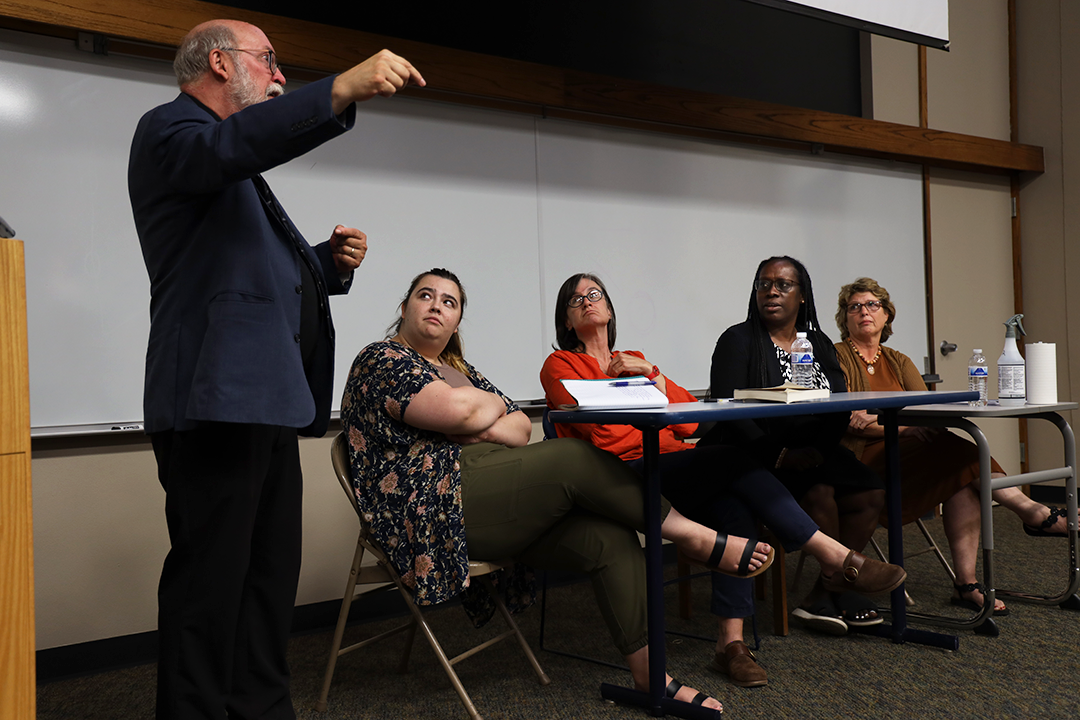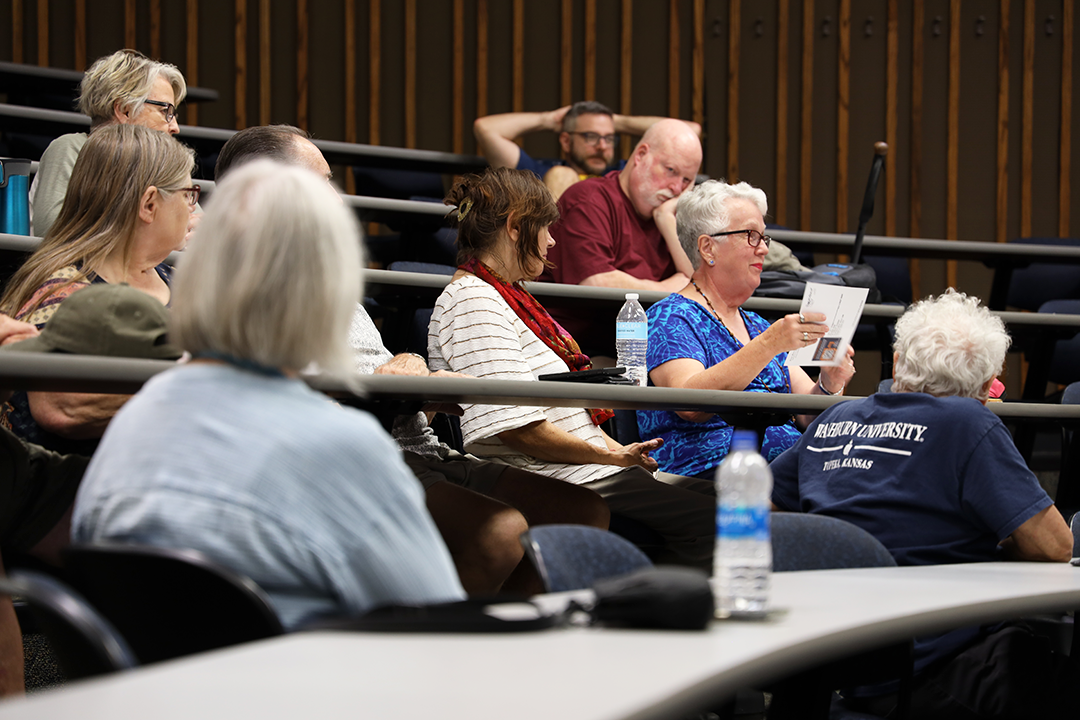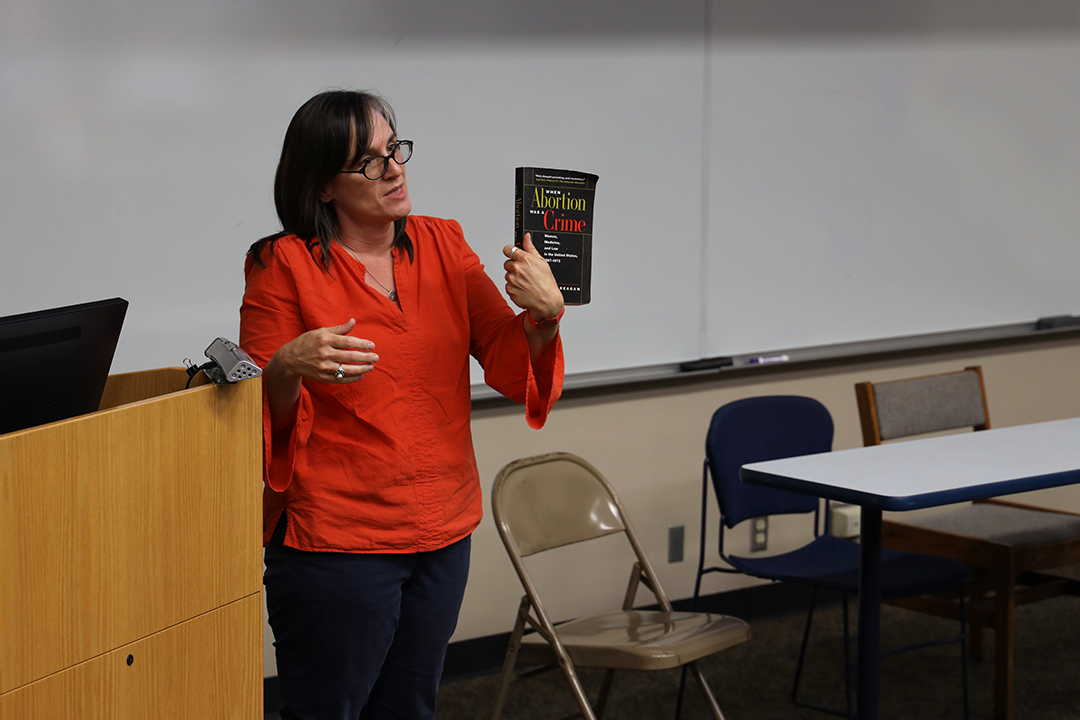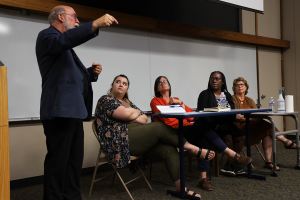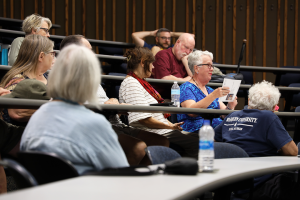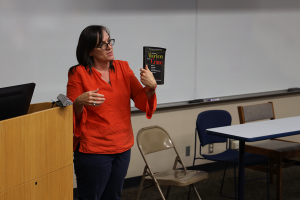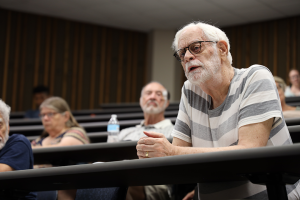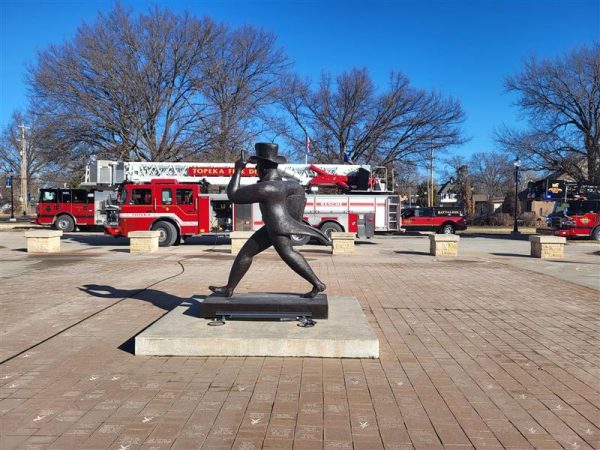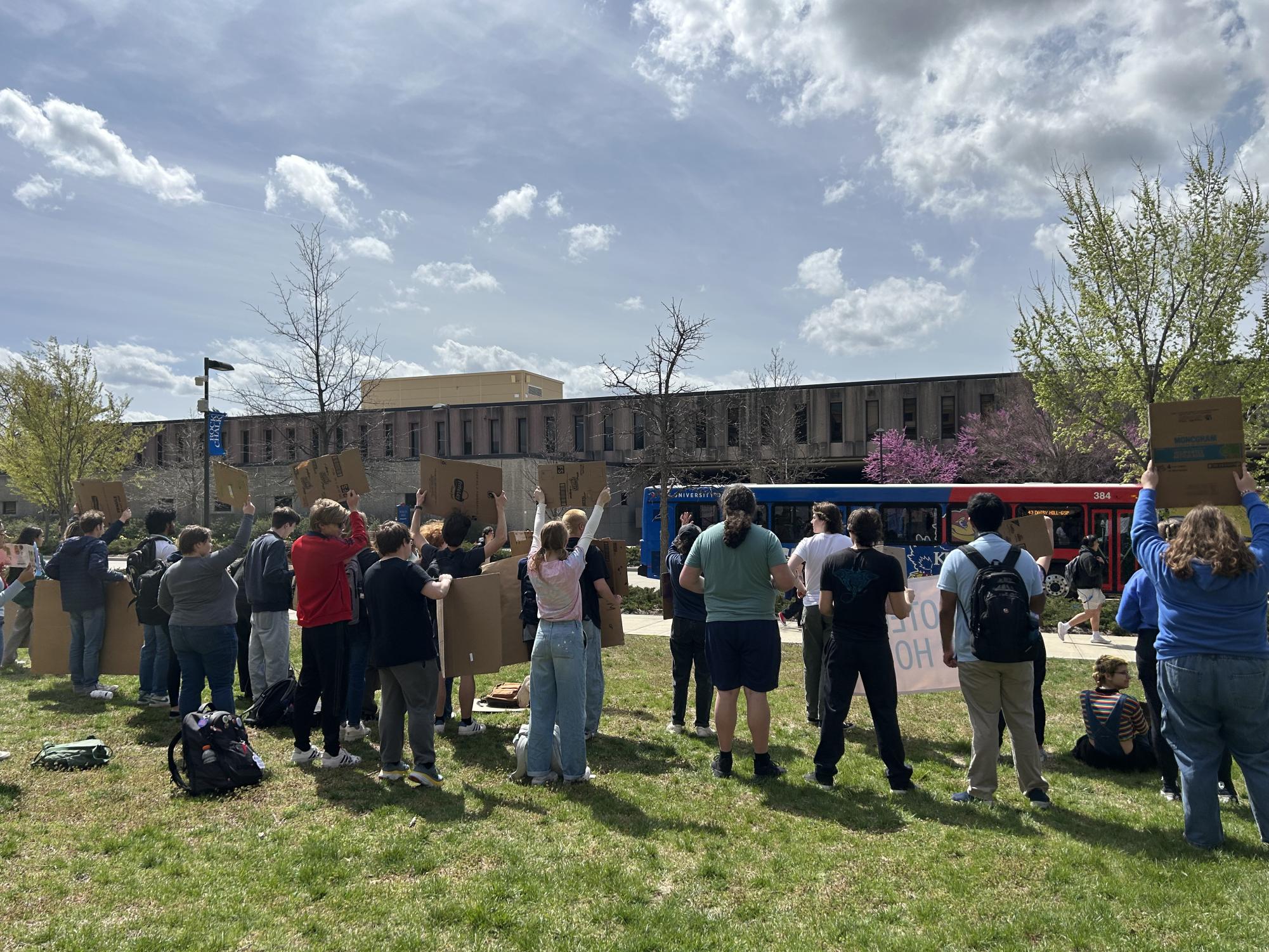Washburn holds abortion forum in response to post Roe America
“History is not static, abortion is not static and abortion law is not static. Rather, it changes over time,” said Kerry Wynn, professor of history. “In the United States, there’s a legal timeline and there’s a popular timeline.”
On Thursday, Sept. 8th, Washburn University held a panel of professors and alumni in Henderson 112, tackling the recent overturning of Roe v. Wade, along with other logistics reproductive rights entailed. Organized by Phi Alpha Theta and hosted by Tom Prasch, professor and chair of history and geography, the panel dove into the details of topics such as of Justice Samuel Alito’s opinion, Kansas abortion statistics and the limited healthcare access that is available for marginalized groups.
Speaking first was Prasch, who highlighted how Alito cited English common law in his opinion on the matter. Accompanied by a PowerPoint presentation, Prasch dissected each element of Alito’s opinion and how it correlated or did not correlate with the traditional law structure.
“Alito roots his position with English comon law, and his logic is his insistence that there is no long-standing right to an abortion, and to prove that he goes back to the 14th century,” said Prasch.
Following Prasch, was Wynn. Wynn spoke on the history of abortion rights from the 1850s to the original decision of Roe v. Wade in 1973. Wynn highlighted how cultural and legal viewpoints have changed over the years by contrasting when abortion was illegal and mostly controlled by male physicians to the decriminalization and cultural acceptance during the mid-20th century.
Katie Wade, an alumni of Washburn and community organizer, built upon Wynn’s presentation by discussing the current climate of abortion rights in America – specifically, Kansas’ recent vote on the issue. Wade discussed the recent Value Them Both amendment and its supporters’ stance, the intention behind how the amendment was worded and what to look for in the future as other bills come up.
“The amendment campaign we saw was a direct response to a 2019 decision by the Kansas Supreme Court that affirmed the right to abortion in Kansas, specifically the right to body autonomy, which covers the right to abortion,” said Wade.
Cheryl Nelson Butler, a visiting professor of law from Texas, spoke on the issues of racial discrimination of Black women and other marginalized groups when it comes to reproductive rights. Butler highlighted how the lack of equal healthcare has affected these groups in comparison to white women of means.
“Marginalized women do not have access to healthcare, they struggle with poverty, they’re stigmatized in other ways,” said Butler. “Black women are dying in childbirth at disproportionate rates because of this lack of equal healthcare.”
Last to speak was Sharon Sullivan, chair of the Theatre. Sullivan listed the regulations and statistics of abortion held by the state of Kansas. Sullivan also spoke about how Kansas has tried to regulate everything from the size of the supply closets in abortion clinics to the font that forms are typed in.
“As of 2017, 98 percent of counties in Kansas have no clinics that provide abortions. There’s currently only four clinics in Kansas that provide abortion,” said Sullivan. “In 2019, 64 percent of abortions were chemical in nature; 70 percent occured earlier than nine weeks of gestation.”
For more information on upcoming events held by Phi Alpha Theta, visit Washburn Univiersity’s events page, or contact Tom Prasch.
Edited by Justin Shepard, LeSha’ Davis
Your donation will support the student journalists of Washburn University. Your contribution will allow us to purchase equipment and cover our annual website hosting costs.
